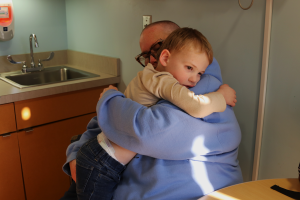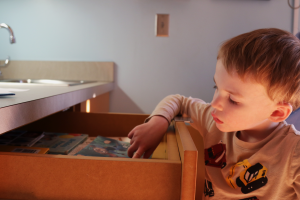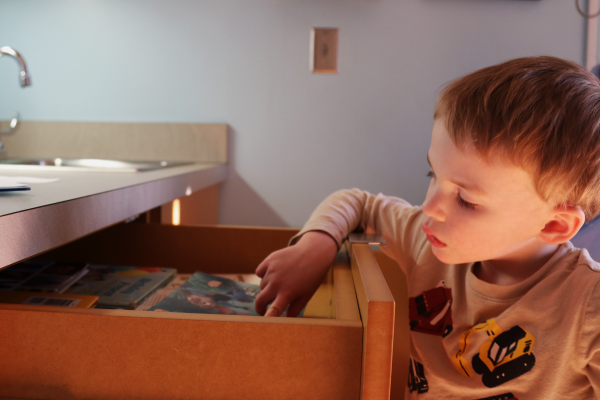Celebrating National Rare Disease Day at the Thompson Center
This week, the Thompson Center is observing National Rare Disease Day! To honor Rare Disease Day, we would like to highlight the Thompson Center’s Rare Disease Clinic and the individuals with rare diseases and their families.
The Orphan Drug Act defines a rare disease as a disease that affects less than 200,000 people in the United States. The Thompson Center’s MU Child Neurologic Rare Disease Clinic is specifically focused on serving patients who have neurodevelopmental conditions associated with neurological conditions. Many of the patients seen at the clinic have specific genetic differences associated with those conditions. The goal of the Rare Disease Clinic at the Thompson Center is to provide comprehensive, multidisciplinary care for patients with complex clinical presentations. Most of the patients in the Rare Disease Clinic are seen by a developmental-behavioral pediatrician, a child neurologist, a genetic counselor, and a social worker. This team-based approach to the clinic allows for the diagnostic and treatment plan discussion to be streamlined and minimizes travel and time spent in individual appointments for the families.
An example of a rare disease that you may be familiar with is Angelman Syndrome. This is a rare neuro-genetic disorder that affects the 15th chromosome from the mother. This disorder occurs in 500,000 people worldwide or 1 in every 15,000 births. Some common characteristics and symptoms of this disorder are walking and balance disorders, gastrointestinal issues, seizures, and little to no speech. Individuals with this disorder are also often characterized as happy, smiley, and often excitable. This is just one example of many known rare diseases that affect between 25 and 30 million Americans.
We would like to highlight one of the families that is part of our Rare Disease Clinic, John Irvin and his grandmother Delinda Irvin. They started coming to the Rare Disease Clinic in 2022 after a recommendation from Dr. Liu Zhao at the Pediatric and Adolescent Specialty Clinic. Delinda said that she felt overwhelmed by all of the medical information she was receiving and wasn’t sure what to do. After John’s first visit with the Rare Disease Clinic, she could feel the support from the Thompson Center staff and especially from Developmental-Behavioral Pediatrics fellow, Dr. Katie Blount. She felt heard and seen and was given direction on next steps for their family. Delinda says that since they have been coming to the Rare Disease Clinic, John has been able to walk better, not wear his leg braces, and is able to understand things better. This is just one of the wonderful families that the Rare Disease Clinic at the Thompson Center has an impact on.


The Rare Disease Clinic is an important service provided at the Thompson Center and reflects the three main areas of our mission: clinical care, research, and education. Thompson Center Director of Medical Services Dr. Benjamin Black says that this clinic “allows our core Thompson Center team to collaborate directly with other providers, thereby expanding our clinic impact. Having this type of clinic also opens up more opportunities for us from a research perspective.” Not only does this clinic provide care for families, but it also provides training experience for our trainees in many disciplines, including fellows in developmental-behavioral pediatrics, medical students, pediatric residents, psychology trainees, and many more. “We’ve all learned a lot through our clinical care in the Rare Disease Clinic, and that helps us all become better at what we do,” said Dr. Black.


